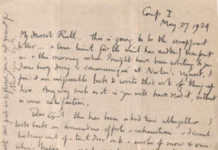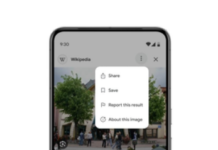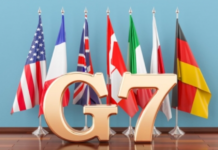San Francisco– Facebook has been accused of ignoring fake accounts undermining political affairs around the world, according to a memo by a former employee of the social networking giant shared with BuzzFeed News.
In the 6,600-word memo, former Facebook data scientist Sophie Zhang wrote that she found evidence of coordinated campaigns to boost or hinder political candidates or outcomes in India and other countries like Ukraine, Spain, Brazil, Bolivia, and Ecuador.
“I’ve found multiple blatant attempts by foreign national governments to abuse our platform on vast scales to mislead their own citizenry, and caused international news on multiple occasions,” she wrote in the memo, as reported by BuzzFeed News on Monday.
“I have personally made decisions that affected national presidents without oversight, and taken action to enforce against so many prominent politicians globally that I’ve lost count,” according to the memo that details her her experiences of working with the social networking giant over the past two-and-a-half years.
Zhang said in the memo that in countries like Azerbaijan and Honduras, heads of government and political parties made use of fake accounts or misrepresented themselves to sway public opinion.
Giving an example of how slow Facebook was in acting against global political manipulation, she said that it took Facebook’s leaders nine months to act on a coordinated campaign “that used thousands of inauthentic assets to boost President Juan Orlando Hernandez of Honduras on a massive scale to mislead the Honduran people.”
Her LinkedIn profile said she “worked as the data scientist for the Facebook Site Integrity fake engagement team” and dealt with “bots influencing elections and the like”.
“I know that I have blood on my hands by now,” Zhang wrote.
However, giving a reference to her work related to India, the memo detailed that she worked to remove “a politically-sophisticated network of more than a thousand actors working to influence” the Delhi Assembly election that took place in February.
Facebook did not reveal the detection of such a a network or that it had taken it down, according to the report.
“We’ve built specialized teams, working with leading experts, to stop bad actors from abusing our systems, resulting in the removal of more than 100 networks for coordinated inauthentic behavior,” Facebook spokesperson Liz Bourgeois was quoted as saying in a statement.
“It’s highly involved work that these teams do as their full-time remit. Working against coordinated inauthentic behaviour is our priority, but we’re also addressing the problems of spam and fake engagement. We investigate each issue carefully, including those that Ms. Zhang raises, before we take action or go out and make claims publicly as a company.”
These revelations come barely a month after a Wall Street Journal report on August 14 said that the top leadership at Facebook’s India office refused to apply the company’s own rules to politicians from the ruling Bharatiya Janata Party (BJP), despite clear violations of Facebook’s policies against incitement to violence, hate speech, and misinformation.
Facebook India’s public policy head Ankhi Das reportedly “told staff members that punishing violations by politicians from Mr. Modi’s party would damage the company’s business prospects in the country.”
Following the report, the opposition Congress Party raised the issue of what it calls “unholy nexus” of the ruling BJP with Facebook and WhatsApp.
On August 18, the Congress Party wrote a letter to Facebook Inc expressing concern and asking them to acknowledge the issue and take corrective action. Congress had raised alarm over “interference in India’s internal affairs by a foreign company”. (IANS)














